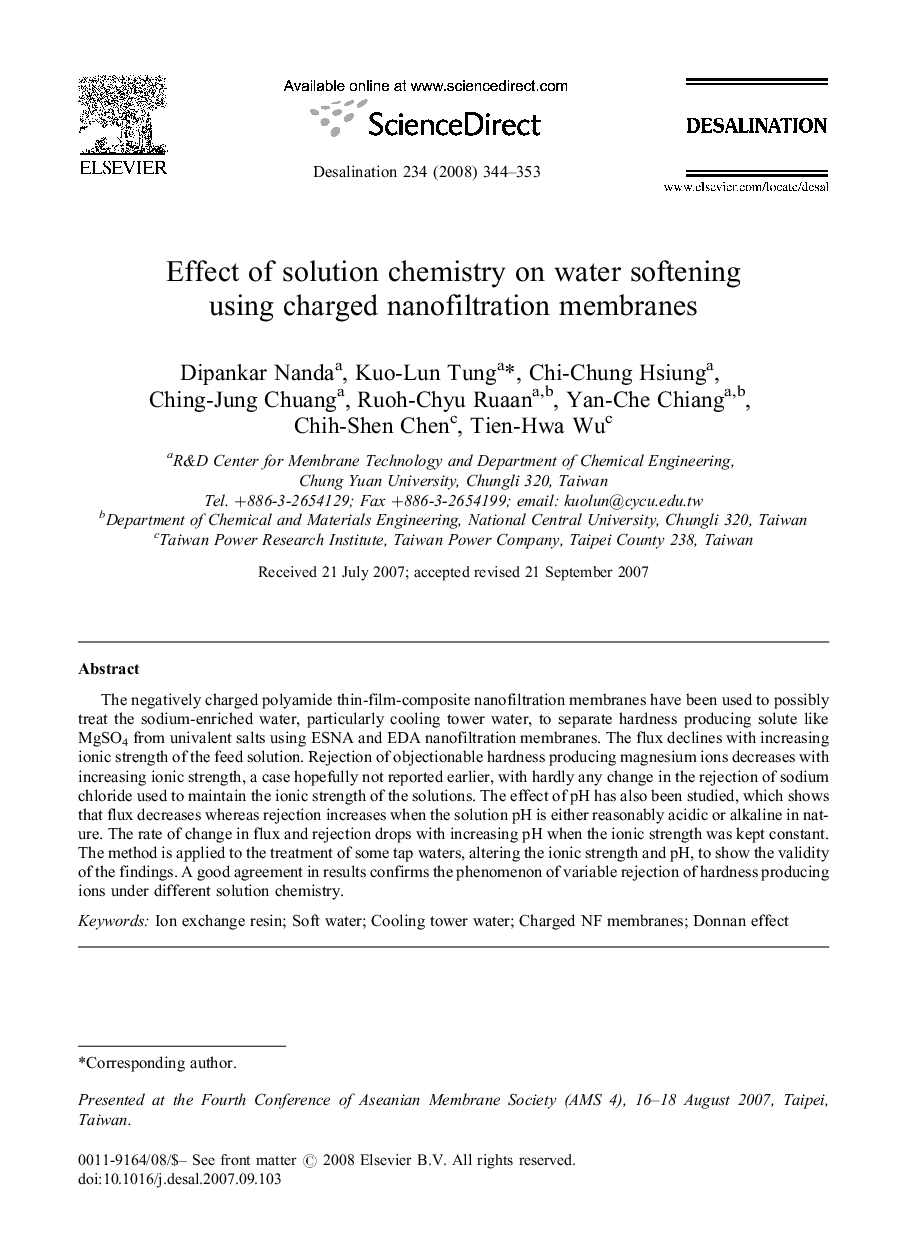| Article ID | Journal | Published Year | Pages | File Type |
|---|---|---|---|---|
| 626924 | Desalination | 2008 | 10 Pages |
The negatively charged polyamide thin-film-composite nanofiltration membranes have been used to possibly treat the sodium-enriched water, particularly cooling tower water, to separate hardness producing solute like MgSO4 from univalent salts using ESNA and EDA nanofiltration membranes. The flux declines with increasing ionic strength of the feed solution. Rejection of objectionable hardness producing magnesium ions decreases with increasing ionic strength, a case hopefully not reported earlier, with hardly any change in the rejection of sodium chloride used to maintain the ionic strength of the solutions. The effect of pH has also been studied, which shows that flux decreases whereas rejection increases when the solution pH is either reasonably acidic or alkaline in nature. The rate of change in flux and rejection drops with increasing pH when the ionic strength was kept constant. The method is applied to the treatment of some tap waters, altering the ionic strength and pH, to show the validity of the findings. A good agreement in results confirms the phenomenon of variable rejection of hardness producing ions under different solution chemistry.
